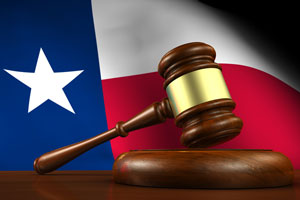Attorneys do not often serve as expert witnesses, in part because only the judge who presides in a trial is the expert in the law that controls the case. In some cases, however, attorneys do serve as expert witnesses. They do so most often in legal malpractice cases, when they testify about the quality of representation a reasonable lawyer should provide and express opinions as to whether a particular lawyer met that standard.
An attorney was allowed to testify in a Texas malpractice case involving a technology company and its patent lawyers. The Texas Court of Appeals recently ruled, however, that the expert’s testimony was based on speculation rather than facts. Since the testimony failed to establish that the plaintiff was harmed by the alleged malpractice, the plaintiff could not prevail.
Lawsuit Background
Axcess International markets radio frequency identification (RFID) products and services. Axcess improved its technology by creating a “dual-frequency RFID system.” It hired Baker Botts, a Texas law firm, to act as its intellectual property counsel. Baker Botts began filing patent applications for Axcess in 1999. A year later, Axcess’ chief competitor, Savi Technologies, hired Baker Botts to seek patents of its own dual-frequency RFID system.
In 2002, when Savi announced the release of its new product, the Axcess employee who developed its dual-frequency RFID system thought that the Savi product might be using the same technology that Axcess had patented or that pending applications were seeking to patent. Axcess asked its Baker Botts attorney for advice. Axcess alleges that Baker Botts failed to provide the requested assistance.
Axcess then hired a new firm, Haynes and Boone, which wrote to Savi and suggested that Savi might need to license the patents that had been issued to Axcess in order to avoid infringing upon that patent. Savi forwarded the letter to its attorney at Baker Botts, who realized that Baker Botts had represented Axcess in its patent applications. Since a conflict of interest existed, Baker Botts told Savi it would need to have a different firm represent it in the case. Represented by new counsel, Savi advised Axcess that it was not infringing the Axcess patents and therefore would not license them.
A third competitor in the RFID industry, AeroScout, later challenged the validity of Savi’s patents. It based its challenge in part on the claim that Baker Botts should have disclosed Axcess’ patent applications to the patent office when it applied for patents on behalf of Savi.
Apparently in response to AeroScout’s contentions, Axcess hired yet another firm to sue Savi for patent infringement. Savi responded by asking the Patent Office to invalidate Axcess’ patent on the ground that the patented technology had already been patented by others. The Patent Office agreed and Axcess lost its patent. Axcess then sued Baker Botts, alleging that Baker Botts committed legal malpractice and that it breached its fiduciary duty to Axcess during its dual representation of Savi and Axcess.
Expert Evidence on Causation
To win its case, Axcess needed to prove not just that Baker Botts committed malpractice or breached a duty of loyalty, but that its alleged misconduct caused harm. The Texas Court of Appeals held that Axcess introduced no competent evidence to prove that it was harmed by Baker Botts.
Axcess relied on the expert testimony of a patent attorney to establish causation. The attorney testified that if Baker Botts had disclosed to Axcess that it was pursuing patents on behalf of its competitor Salvi, Axcess would have hired counsel that did not have a conflict of interest. The attorney then testified that, with new counsel, Axcess would have initiated an interference proceeding with the Patent Office. Under the law in effect at that time, the party that first invented something (rather than the party that first filed for a patent) was entitled to patent it. An interference proceeding resolves conflicts about entitlements to patents.
The attorney testified that a successful interference proceeding would have caused Salvi’s patent rights to shift to Axcess, placing Salvi’s lucrative government contracts that relied on the patents at risk. That would have placed Axcess in a stronger position to negotiate a resolution with Salvi, which would have benefitted Axcess.
According to the appellate court, the attorney’s expert opinion as to causation rested on (1) his belief that Axcess would have prevailed in its interference proceeding, and (2) his belief that Salvi would have negotiated a resolution to the dispute that would have benefitted Axcess. The court concluded that the attorney’s beliefs amounted to speculation rather than factual evidence.
The court decided that the attorney had no basis for deciding how the patent office would have responded to the interference proceeding. He pointed to no facts, such as similar disputes that the Patent Office had decided, to support his opinion that the Patent Office would have ruled in Axcess’ favor. The fact that the Patent Office ruled in Salvi’s favor with regard to another patent suggested that the attorney’s opinion was not grounded in the specific facts that separate a reasonable conclusion from conjecture.
In addition, the court decided that the attorney’s opinion as to what Salvi would have done if, in fact, Axcess had prevailed in the interference proceeding was entirely speculative. His testimony about what Salvi might have done was, in the court’s view, a conclusory opinion that was not based on fact.
Since Axcess needed expert evidence to prove that it was harmed by the actions of Baker Botts, and since the evidence it produced was based on speculation rather than facts, Axcess was not entitled to prevail. The case is a reminder that no matter how knowledgeable or qualified an expert might be, an expert’s opinion must still be grounded in demonstrable facts before a court will rely upon it.




